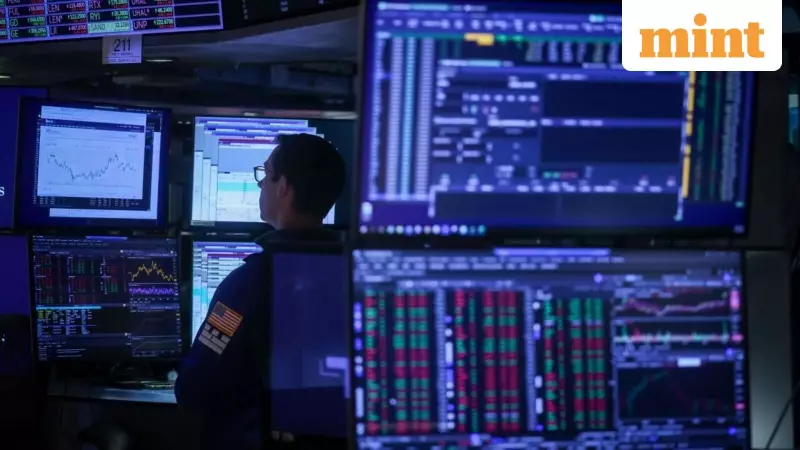
Financial markets worldwide experienced a severe downturn on Monday, with the selloff affecting everything from technology stocks to cryptocurrency and traditional safe havens like gold. The widespread decline marked one of the most significant market retreats in recent months, driven by growing investor concerns about massive capital expenditures by major technology companies.
Major Indexes Break Key Support Levels
The S&P 500 and Nasdaq Composite both slipped below their 50-day moving averages for the first time in 138 trading days, ending their longest streak above this critical technical level since before the 2008 financial crisis. The Dow Jones Industrial Average completed its worst three-day decline since April, dropping 1.2% or 557 points on Monday alone.
This market turbulence comes during a period when investors are reassessing whether the artificial intelligence boom and economic growth that propelled stocks to record highs throughout 2025 can sustain into the new year. The uncertainty has pushed Wall Street's fear gauge, the Cboe Volatility Index, to some of its highest levels since the tariff announcements earlier this year.
Technology Sector Takes Major Hit
The technology sector, particularly companies involved in artificial intelligence infrastructure, faced significant selling pressure. Nvidia, Meta, and Amazon all retreated despite Warren Buffett's Berkshire Hathaway making a multibillion-dollar bet on Alphabet, Google's parent company. The investment sent Alphabet shares 3.1% higher, but failed to boost sentiment across the broader AI sector.
Other AI-related companies including Advanced Micro Devices, Super Micro Computer, and Dell Technologies also declined. Oracle and CoreWeave extended their weeks-long tumble, reflecting growing concerns about the sustainability of massive AI infrastructure investments.
Market analysts point to increasing nervousness about big tech companies projecting enormous capital expenditures that depend heavily on issuing substantial debt. Amazon's plan to issue $15 billion in bonds provided fresh evidence of the expensive financing arrangements supporting what has become one of the largest infrastructure build-outs in U.S. history.
Crypto and Traditional Safe Havens Also Suffer
The market retreat extended beyond traditional equities into alternative assets. Bitcoin prices slid to $91,859.13 by 4 p.m. Monday, according to CoinDesk data. Coinbase shares dropped 7.1% as cryptocurrency markets experienced significant pressure.
Even gold, traditionally considered a safe haven during market turbulence, pulled back with front-month futures slipping to $4,068.30 a troy ounce. Some analysts noted that gold has recently been trading more like a speculative stock than a protective asset.
The broad-based nature of the selloff suggests investors are growing increasingly cautious about multiple asset classes simultaneously. This comes as markets operate with limited economic data following the recently ended government shutdown, with delayed September jobs data scheduled for release on Thursday.
Economic Indicators and Federal Reserve Outlook
Recent economic data has provided mixed signals about the health of the U.S. economy. The Commerce Department reported that nonresidential construction spending declined in August from the previous month, with builders pulling back from most types of projects. Data-center development stood out as one of the few bright spots in the construction sector.
Bank stocks and smaller companies more sensitive to borrowing costs also extended declines amid uncertainty around Federal Reserve interest-rate policy. While traders have reduced their expectations for a rate cut in December, futures markets still suggest a nearly two-thirds chance of at least one cut by January.
Federal Reserve Vice Chair Philip Jefferson emphasized the need for caution in a talk at the Kansas City Fed, stating that the risk of stubborn inflation and weaker employment conditions "underscores the need to proceed slowly" with potential rate cuts. He noted that while current policy remains "somewhat restrictive," the Fed has moved it closer to a neutral level that neither restricts nor stimulates the economy.
As markets await key earnings reports from companies like Nvidia on Wednesday and the delayed jobs data on Thursday, investors remain cautious about whether the AI-driven market rally can maintain its momentum amid growing concerns about debt-financed capital expenditures and economic uncertainty.





